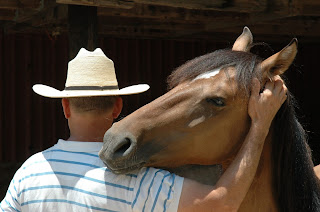Don’t Like This Blog
I just read an article ("I Liked Everything I Saw on Facebook for 2 Days. Here's What It Did to Me," by Mat Honan, from Wired, Aug 11, 2014) that a friend shared on Facebook. This author discusses what happened to his Facebook news feed when he "liked" nearly everything for two days. As one might expect, the news feed became entirely commercial or article-related -- no posts from friends -- especially on mobile versions of Facebook.
"Liking" on Facebook is the new forwarded email joke. Remember? Everyone had at least one friend who persistently emailed jokes to you, sometimes more than once a day, old jokes, bad jokes, boring jokes, and often little cheery bits of fluff along the lines of 'somebody loves you' or 'forward this or go broke and then die." If you complained to your friend: "Stop sending me this crap! Can't you just say 'hello' and tell me what's up with you?" the target of your complaint would reply, "But my jokes my way of saying 'hello'! I don't have time to write everyone emails!"
This is what Facebook "like" has become. It means "hello," or "I hear you," or "how cute." Notice how icky you feel when someone posts bad news and you think, "I can't 'like' this! It's horrible!" or "How sad! Where's the dislike button?" Your upbringing (probably) won't let you just say "hello" when someone is unhappy or hurt or sick because you ought to SAY something. Although I have to admit, I became so weary of "I'm sorry for your loss" after my son died. It's not so much that every time I heard it, I was reminded of television cop dramas, where the police go to the victim's family's door and say "I'm sorry for your loss." But it's more about why don't you say something you're really feeling? It's okay if it sounds stupid (to you) or clumsy or short of what you really feel. If it's original, if it's what you really feel ("Damn, that sucks. It's not fair. I don't know what else to say."), it's honest, and it does mean something.
(And why won't Facebook give us a "Dislike" button?)
I guess what we're leading up to here is that we don't know how to communicate with one another in a feeling, emotional way. It's easier to forward an email, "like" a Facebook post, or utter some socially acceptable cliché because, well, at least he knows I was thinking about him!
Have you ever read really old letters? There is this except from a letter from John Keats to his love, Fanny Brawne:
"My dearest Girl, Indeed I will not deceive you with respect to my Health. This is the fact as far as I
know. I have been confined three weeks and am not yet well - this proves that there is something wrong about me which my constitution will either conquer or give way to - Let us hope for the best. Do you hear the Th[r]ush singing over the field? I think it is a sign of mild weather - so much the better for me. Like all Sinners now I am ill I philosophise, aye out of my attachment to every thing, Trees, flowers, Thrushes Sp[ r]ing, Summer, Claret &c &c aye every thing but you - - my Sister would be glad of my company a little longer. That Thrush is a fine fellow. I hope he was fortunate in his choice this year." (http://englishhistory.net/keats/letters/brawnefebruary1820.html)
 You argue, but he was a poet! And a tubercular one, too! But what he was writing was original, from the heart, and not dependent on form or cliché. Note that he even misspells words. I'm sure Fanny appreciated this letter more than a Hallmark greeting card.
You argue, but he was a poet! And a tubercular one, too! But what he was writing was original, from the heart, and not dependent on form or cliché. Note that he even misspells words. I'm sure Fanny appreciated this letter more than a Hallmark greeting card.Okay, so this is the Information Age. I Googled "what to say when someone dies." Google gave me "About 37,500,000 results (0.48 seconds)." Good old Google. Why would I tell someone "Sorry for your loss" when I have more than 37 million sources for alternatives? (Maybe fewer – there are always repeats in Google search results.) Perhaps the news is sudden. ("Hi. How have you been? My dog died since last I saw you.") It would look bad to whip out your phone and Google, "what to say when someone's pet dies." So reach deep down, past your Vulcan training and say what feels right. "I bet you need a hug." Are you not the hugging type? "I cried for a week when my cat died." Never had a pet? "I can't imagine how that feels."
What? You mean it's okay if you admit you don't know what to say? If it's okay (and 'they' say it is) for a parent to admit to her child that she doesn't know the answer to a question, if it's acceptable for a teacher to admit he has to look up the answer to something a student asks him, then why wouldn't it be okay for me to tell someone who's lost a loved one that I'm at a loss for words?
 Perhaps television is to blame. Characters on television, even the bumbling ones, always have something to say. Often it is witty, or deep, or at least funny. Why is that? Well, because there are writers who put those words in their mouths! Because it's not real! You can put those words in your own mouth though, and not just after conducting Internet searches.
Perhaps television is to blame. Characters on television, even the bumbling ones, always have something to say. Often it is witty, or deep, or at least funny. Why is that? Well, because there are writers who put those words in their mouths! Because it's not real! You can put those words in your own mouth though, and not just after conducting Internet searches.This is what I tell my students. The way to learn to write is to read. It's not my idea. I stole it from somewhere else. I read it. But if a person reads – and reads a lot – all those authors' ways of expressing themselves eventually get into your brain. It's how you avoid these problems I see in student papers:
- In today's society, it's a doggie dog world.
- If we can...get the athlete help before its to late...in the long hall we can save a lot not just athletes but people.
- ...The Civil Rights movement reached new peeks.
- ...every faucet of their lives are brought into the spotlight...
- It would have prevented the idiot local news "reporter" – broadcasting from the scene of a semi-truck rollover – from referring to its load of rebar as "rod iron."
I will be the first to admit that there have been times I have been rendered mute by certain circumstances. Friends lost a young foster daughter who suffered for several years with brain damage and the resulting mental handicaps and visits to the hospital that came with it. In spite of her medical condition, she was a happy child, much loved by her longtime foster parents. I didn't know what to say when she died, so I said nothing. I didn't go by and see them or call them or send a note – nothing. (This was in the days before email and Facebook and SMS messages.) In the end, I looked like a bad friend and felt guilty about it for a long time. I still feel as if I let them down. We weren't close, but we were good enough friends that I should have said something. It was after this incident that I determined never to let an occasion go by without saying something. I might not know what to say, but that's okay. "I just called to let you know I heard the news. Can I do anything for you?"
A neighbor suddenly lost her husband after a brief marriage. It was about the same time my son died. I was in no shape to offer any kind of sympathy. But I went to a local caterer and bought some prepared evening meals – a couple her young grandson might like – and dropped them off at her house. (My thought was,"I don't know what to say, but perhaps this gesture will ease a small burden for a short moment.") I hope she heard me.
It's all any of us can hope.



Comments
When he answered the phone, I said, "I talked to C., and she told me what's going on." I stammered for a couple of seconds and then, "B., I really don't know what to say."
He laughed. He laughed! Then he said, "I'm so glad you called..."
When you lost your son, I didn't know what to say, so I stayed silent. I'm sorry I was such a coward. It's not that I didn't care.